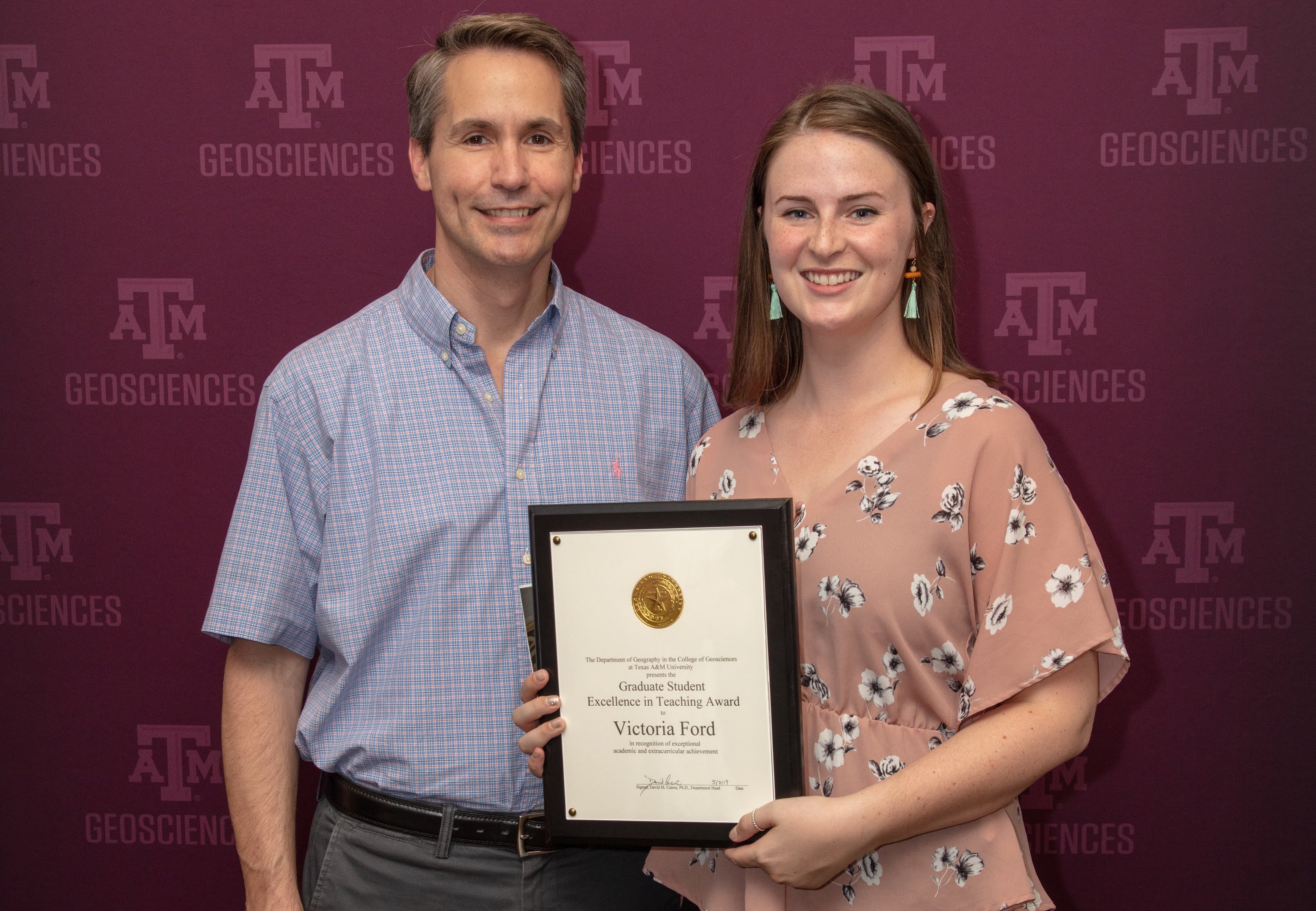Climatology Course Requirements

Based on the below plan, M.S. (thesis-option) students have 24 credit hours of course work and when combined with 6 hours of GEOG 691 (Research), this equals 30 hours out of the total 32 hours required for the M.S. degree (the remaining 2 hours are for additional electives and can be used as needed).
Based on the below plan, Ph.D. students have 36 credit hours of course work and when combined with 28 hours of GEOG 691 (Research), this equals the total 64 hours required for the Ph.D. degree.
Courses required by the Department of Geography (6 hours):
Required prerequisites for all M.S. and Ph.D. students in climatology:
(may be waived if equivalent courses have been completed at another university)
Climatology seminar requirement:
(at least 6 hours for M.S. and at least 9 hours for Ph.D.)
- GEOG 612 – Applied Climatology
- GEOG 634 – Hydrology and Environment
- GEOG 642 – Past Climates
- GEOG 658 – Urban Climatology and Human Biometeorology
- GEOG 668 – Arctic Climates
Statistics requirement:
(at least 3 hours for M.S. and at least 6 hours for Ph.D. from the following, or geography equivalent)
- GEOG 652 – Quantitative Methods in Geography; plus at least one of the following courses:
Programming/Data Analysis requirement:
(at least 3 hours for Ph.D. students; strongly encouraged but not required for M.S. students)
- OCNG 656 – Matlab Programming for Ocean Sciences
- OCNG 657/658 – Data Methods and Graphical Representation in Oceanography (MATLAB)
- OCNG 669 – Python for Geosciences
- ATMO 321 – Computer Applications in the Atmospheric Sciences (IDL or MATLAB)
- CSCE 601 – Programming with C and Java
- CSCE 602 – Object-Oriented Programming
Relevant geography seminars:
(6 hours for M.S., 9 hours for Ph.D.)
- GEOG 619 – Human Impact on the Environment
- GEOG 624 – Biogeography Theory and Methods
- GEOG 625 – Landscape Ecology
- GEOG 626 – Fluvial Geomorphology
- GEOG 651 – Remote Sensing For Geographical Analysis
- GEOG 660 – Applications in GIS
- GEOG 661 – Digital Image Processing and Analysis
- GEOG 665 – GIS-Based Spatial Analysis and Modeling
- GEOG 666 – Coastal Geomorphology
- GEOG 667 – Dynamic Modeling of Earth and Environmental Systems
- GEOG 696 – Geomorphology and Remote Sensing
Relevant graduate seminars outside of geography:
(3 hours for M.S., 3 hours for Ph.D.)
- ATMO 601 – Fundamentals of Atmospheric Dynamics
- ATMO 604 – General Circulation and Climate
- ATMO 629 – Climate Change
- ATMO 631 – Climate Modeling
- ATMO 655 – Satellite Date in Meteorology
- ATMO 659 – Tropical Cyclones
- CVEN 602 – Remote Sensing in Hydrology
- CVEN 627 – Engineering Surface Water Hydrology
- CVEN 674 – Groundwater Engineering
- CVEN 675 – Stochastic Hydrology
- ECCB 603 – Ecological Modeling
- ECCB 607 – Terrestrial Ecosystems and Global Change
- ECCB 622 – Biogeochemistry of Terrestrial Ecosystems
- ECCB 626 – Fire Ecology
- ECCB 635 – Ecohydrology
- ECCB 660 – Landscape Analysis and Modeling
- OCNG 613 – Polar Regions of the Earth
- OCNG 651 – Metorological Oceanography
- PLAN 616 – Analyzing Risk/Hazard and Public Policy
- PLAN 647 – Disaster Recovery and Hazard Mitigation
- WMHS 601 – Applications and Problems in Hydrological Science
- WMHS 602 – Contemporary Issues in Water Resources
Relevant graduate courses in Geographic Information Science & Technology:
(optional)
- GEOG 651 – Remote Sensing for Geographical Analysis
- GEOG 659 – Geodatabases
- GEOG 660 – Applications in GIS
- GEOG 661 – Digital Image Processing and Analysis
- GEOG 662 – GIS in Land and Property Management
- GEOG 665 – GIS-Based Spatial Analysis and Modeling
- GEOG 676 – GIS Programming
- GEOG 677 – Geomorphometry
- GEOG 678 – WebGIS
- GEOG 695 – Frontiers in Geographic Information Science
